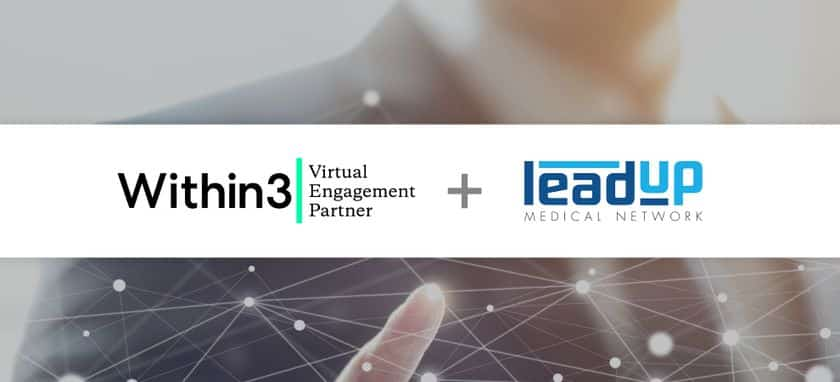Ours is the era of big data. The term big data was coined in the 1990s, but at that time, early users couldn’t possibly have predicted just how prevalent data was to become over the coming decades. The digital revolution of the 21st century has created far more data sources – and far greater quantities of raw, unprocessed data – than anyone could have imagined. For that reason, data security and integrity are important.
For the pharmaceutical industry, those burgeoning data sources include clinical trial data, medical claims data, social media and website data, numerous databases, patient testimonials, wearable tech, and more. It’s a deluge of data, and for that reason, data integrity is more important than ever to minimize data errors, ensure accuracy and consistency, and guarantee compliance.
In this article, we ask the question: what is data integrity in pharma? We’ll explore the importance of data collection in healthcare, how data integrity is critical to the pharmaceutical industry, unpack the principles of data integrity, and examine how you can ensure it’s maintained.
What are the principles of data integrity?
The ALCOA+ principles
The idea of data integrity can seem slightly nebulous. The ALCOA principles were defined to bring more clarity and consistency to the term, and give pharma teams something to aim for. ALCOA is an acronym standing for attributable, legible, contemporaneous, original, and accurate. However, it quickly became apparent that the scope of data integrity was broader than the initial ALCOA definition allowed, so the four additional principles of ALCOA+ were added to complete the set.
The ALCOA+ principles and their definitions are as follows:
- Attributable: Who recorded the data, who observed it, and when was it recorded?
- Legible: Data must be readable and easy to understand, with original entries preserved.
- Contemporaneous: Data must be recorded at the time it was generated, exactly as it was observed.
- Original: Source data must remain original and unaltered.
- Accurate: Data should be free from errors and reflect its actual value.
- Complete: Data must be fully recorded and in a complete state
- Consistent: Data must be consistently recreated across all sites and operations and recorded sequentially.
- Enduring: The data should be secure, and no one should be able to change or delete it.
- Available: The data should be readily available for those who need to access it.
Quality management can ensure companies limit the risk of data integrity violations through accurate data collection.
“Data altered such that it no longer fulfills these criteria is considered as falsified, regardless of it being due to human error or generated deliberately.” – Sia Chong Hock et al, via Generics and Biosimilars Initiative Journal
Why is data integrity important in pharma?
Every individual and pharmaceutical company is bound to encounter a data integrity issue, especially as data proliferates. The pharmaceutical industry is more highly regulated than arguably any other, and the data generated throughout the drug development process is, by its very nature, highly sensitive. For these reasons, data integrity in pharma is of the utmost importance.
“Data integrity is highly important in any industry, but especially so in the pharmaceutical industry where any data error could mean serious consequences.” – Pharmaceutical Guidelines
However, it would be a mistake to assume that data integrity in pharma is merely a safeguard to avoid negative repercussions, such as a data breach or data error. The big data explosion is a source of immense opportunity for pharmaceutical companies, but to capitalize on those opportunities, pharma teams need access to reliable, accurate, high-quality types of healthcare data. Many of the ALCOA+ principles are as much about maintaining data quality as they are about helping teams remain secure and compliant.
“Data quality determines the possibility for companies to guarantee the quality of their products… Data integrity is essential for reshaping the pharmaceutical industry and triggering significant innovation.” – Pharmaceutical Engineering
Data integrity compliance is critical for every pharmaceutical company and it can be done with the guidance of regulatory agencies.
Turning data into insights
On its own, raw, unprocessed data holds little value. And in the pharmaceutical industry, the sheer volume of raw data can make extracting that value even more challenging. The trick is to turn that raw data into actionable insights. Modern insights management platforms use AI-powered natural language processing and sentiment analysis in healthcare and life science to capture, manage, and streamline insights from field team observations, HCP insights and interactions, social media conversations, and more – empowering you to strategize effectively and drive tangible business outcomes. Data integrity best practice is only the start. To extract true value, you need to turn data into insights.
Learn more about sentiment analysis and the patient experience, or for more information on pharmaceutical data best practices, read our guide to responsible clinical trial data sharing.
Sources
Generics and Biosimilars Initiative Journal. Pharmaceutical Data Integrity: issues, challenges and proposed solutions for manufacturers and inspectors. http://gabi-journal.net/pharmaceutical-data-integrity-issues-challenges-and-proposed-solutions-for-manufacturers-and-inspectors.html
Pharmaceutical Guidelines. Principles of Data Integrity. https://www.pharmaguideline.com/2018/04/principles-of-data-integrity.html
ISPE. Why is Data Integrity Critical in the Pharma Industry? https://ispe.org/pharmaceutical-engineering/ispeak/why-data-integrity-critical-pharma-industry






